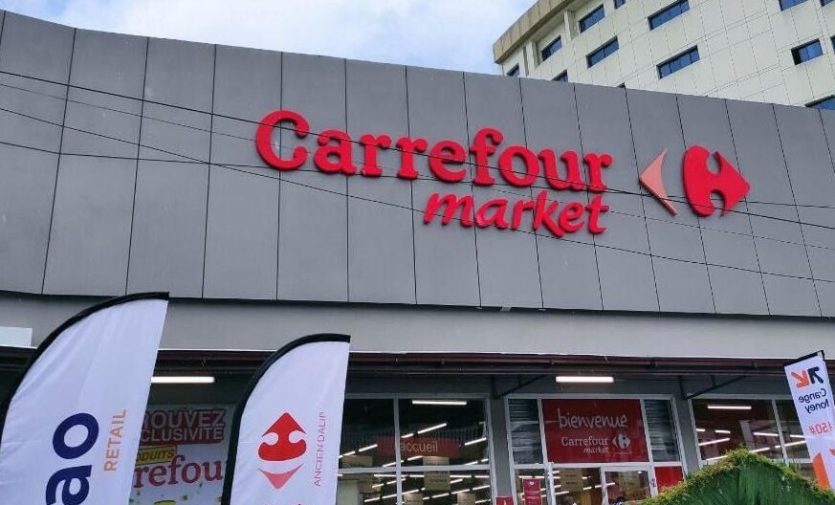
In the space of three years, their number has multiplied considerably; Carrefour, Casino, Super U, Spar, Domino, Bao... With investments amounting to billions of CFA francs, they have made a dazzling breakthrough in the mass distribution sector in Cameroon. These brands, most of which are French, are specialised in the distribution of food products and some in domestic equipment, supplies and other accessories.
Installed in the major cities, these shops compete fiercely with local brands (Dovv, Santa Lucia, Fokou, Sesame, Kado, etc.). This is manifested through pricing policies, payment methods and various facilities granted to customers to distinguish themselves.
One of the main strategies observed is that of proximity. It consists of opting for a closer relationship with customers by opening supermarkets in the neighbourhoods. These points of sale, sometimes available 24 hours a day or with late closing, allow the concentration of efforts on the portion of the population with an average income level. Well thought-out offers and systematic advertising help to arouse and maintain the interest of the target audience.
However, beyond the efforts of seduction, the issue of the purchasing power of the Cameroonian population remains problematic. Due to lack of means, a large majority of Cameroonians prefer to shop in small shops or markets near their homes where prices are considered more affordable.
The culture of the supermarket is not the most widely shared thing, especially in remote areas. This would explain the choice of large metropolises as a priority location for these brands: Douala, Yaoundé mainly. The presence of a middle class with greater purchasing power would be the justification.
The establishment of hypermarkets or supermarkets brings to the fore the importance of supplies, logistics and the need to develop central purchasing units, which will have the effect of favouring local business with an impact on agriculture, livestock and the cold chain. Moreover, this development of mass distribution is accompanied by a need for product processing. This is a sector in which Cameroonian small and medium-sized enterprises (SMEs) and local players could do well. It is also a niche market for young jobs that should not be neglected.
The supermarkets represent an opportunity for local products and brands to make an offensive breakthrough in search of visibility. However, local producers denounce the ultra-dominance of imported products and a threat to the retail trade carried out by nationals. In Africa, modern trade, i.e. large-scale distribution, already represents 20 to 30% of operations. Supermarkets, hypermarkets, shopping centres, all segments are growing steadily. The major retailers are continually looking for the best way to adapt the commercial offer to the tastes and habits of urban consumers on the continent.
Today, with globalisation and increasing purchasing power, the African consumer wants pleasant shops, close to home, a diversified product offer, affordable prices and a controlled assortment. Modern trade meets these expectations. Faced with foreign superstores, local retailers must be imaginative in order to succeed and take a significant share of the pie.
While it is true that the potential for penetration is still significant insofar as purchases in supermarkets do not exceed 10% of total transactions in sub-Saharan Africa (excluding South Africa), one cannot help but ask the question: at this rate, what will become of the small neighbourhood shops, our dear "assos", "maguidas"?